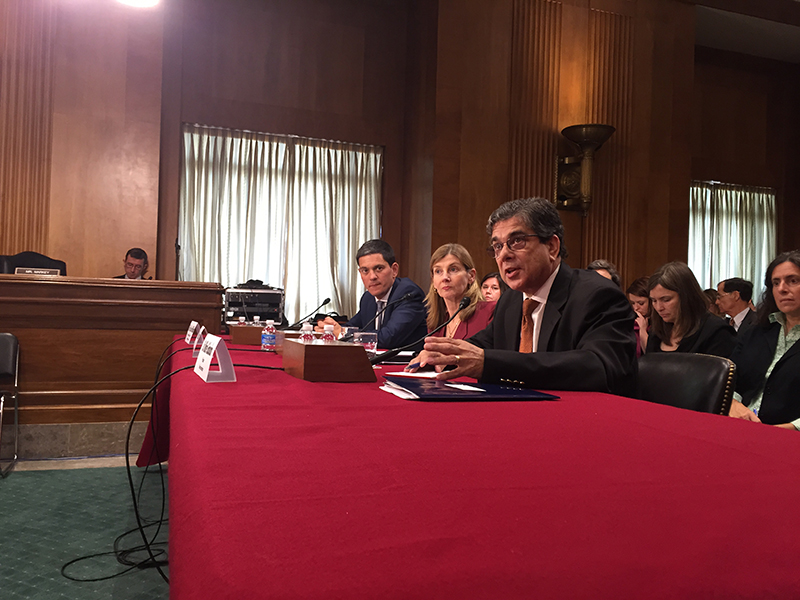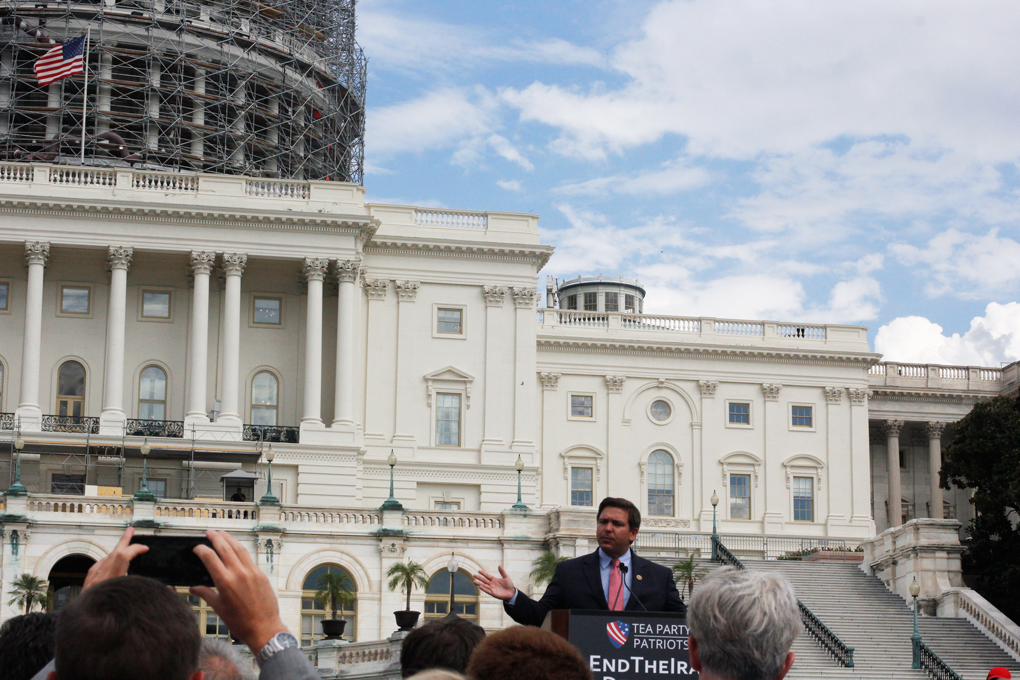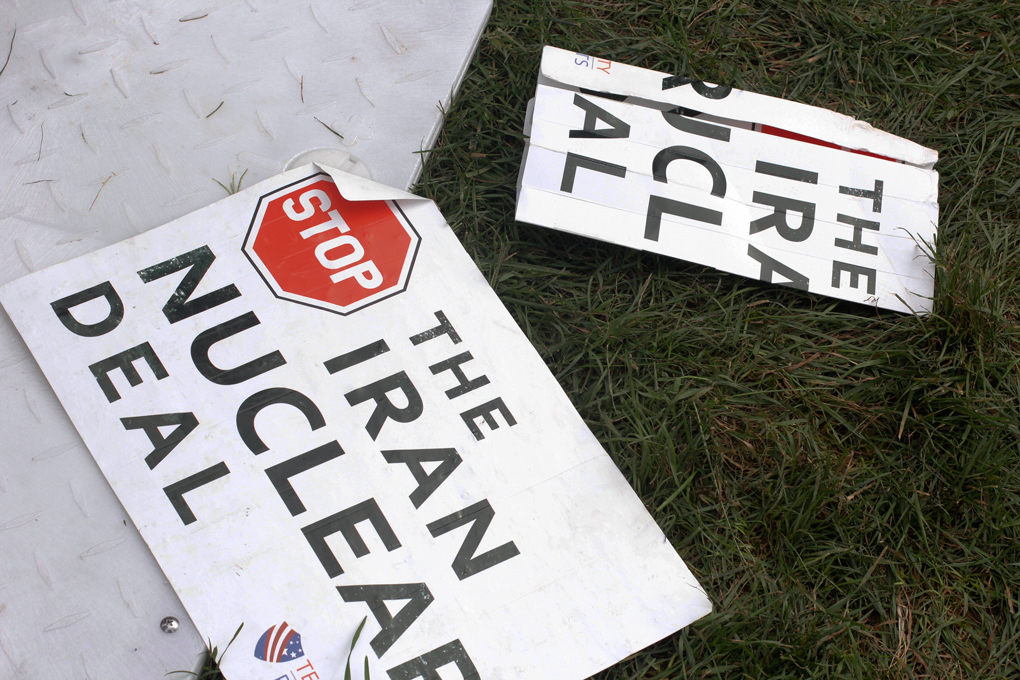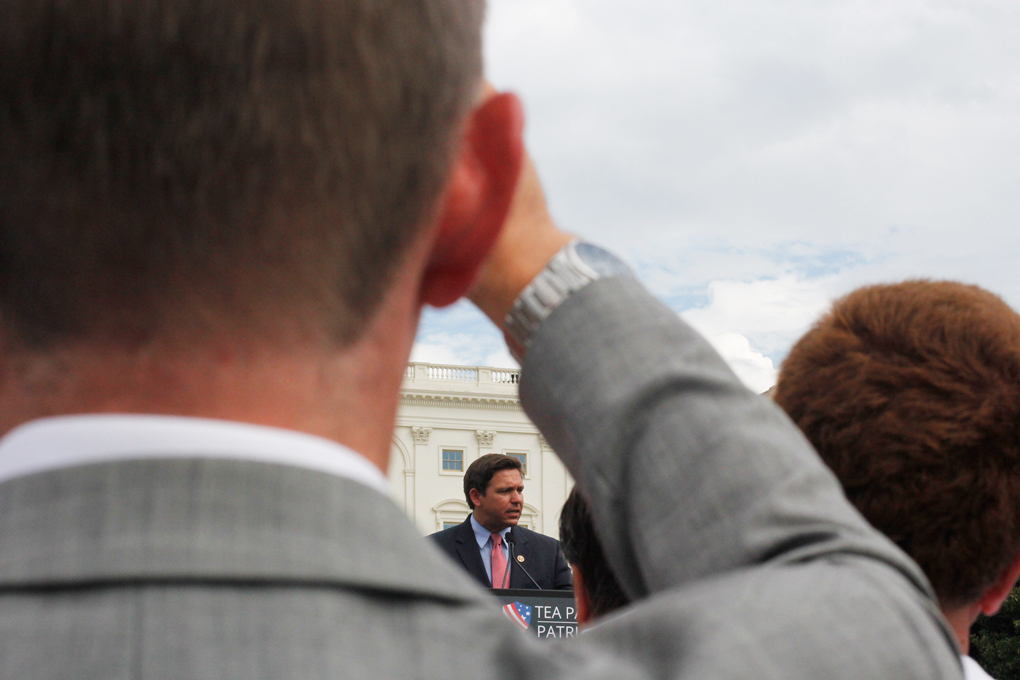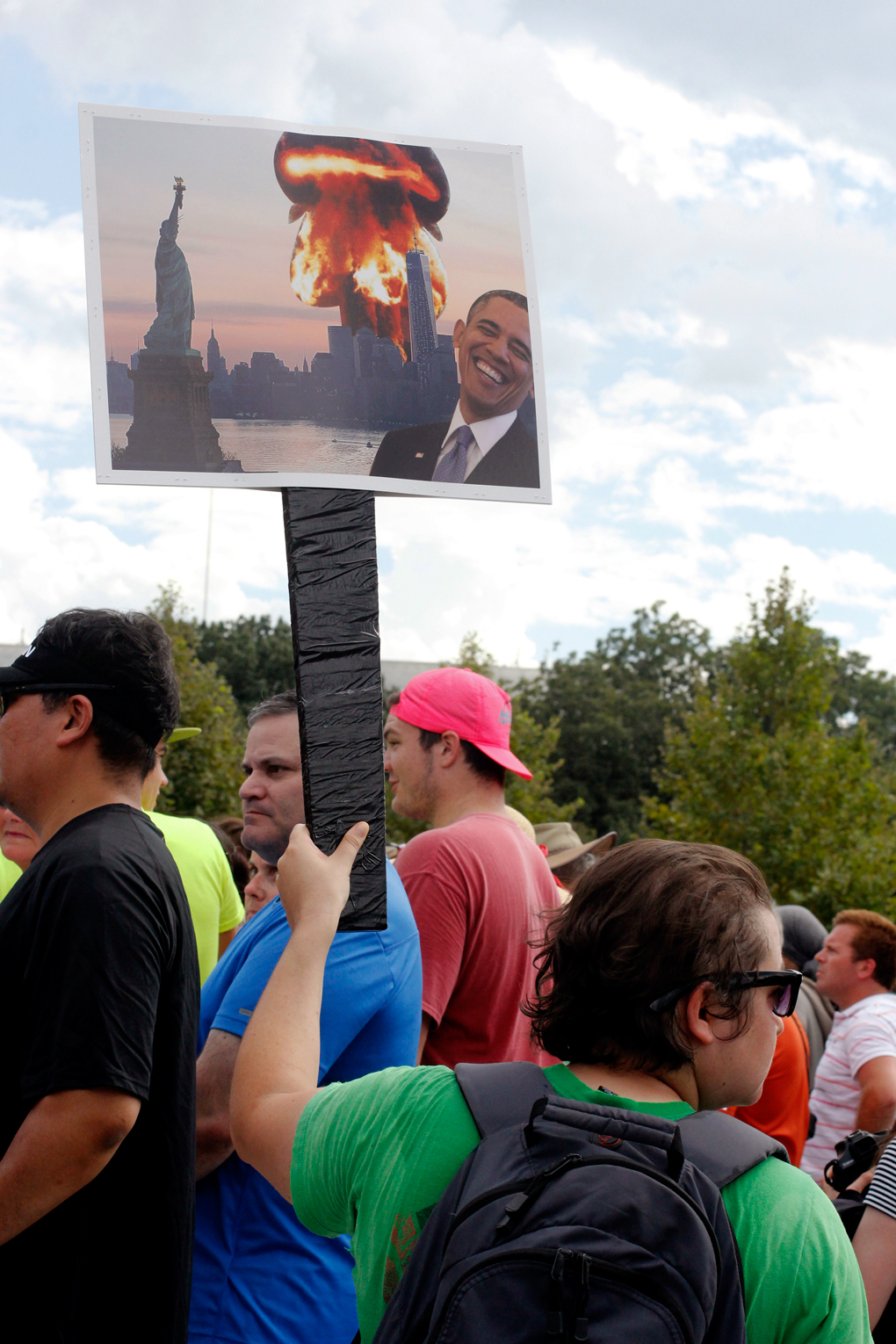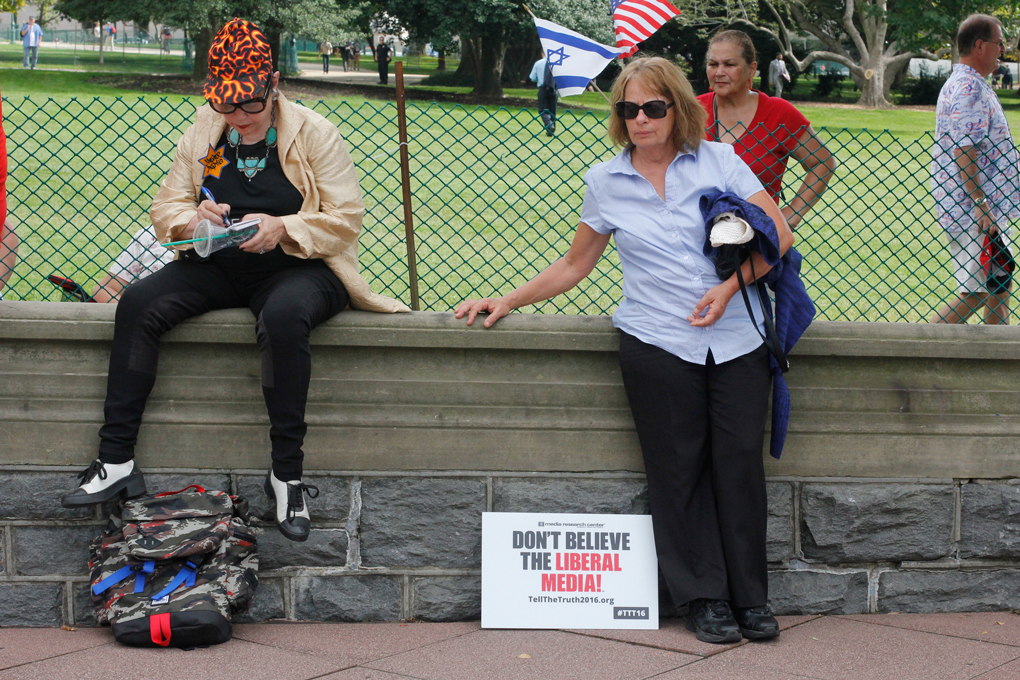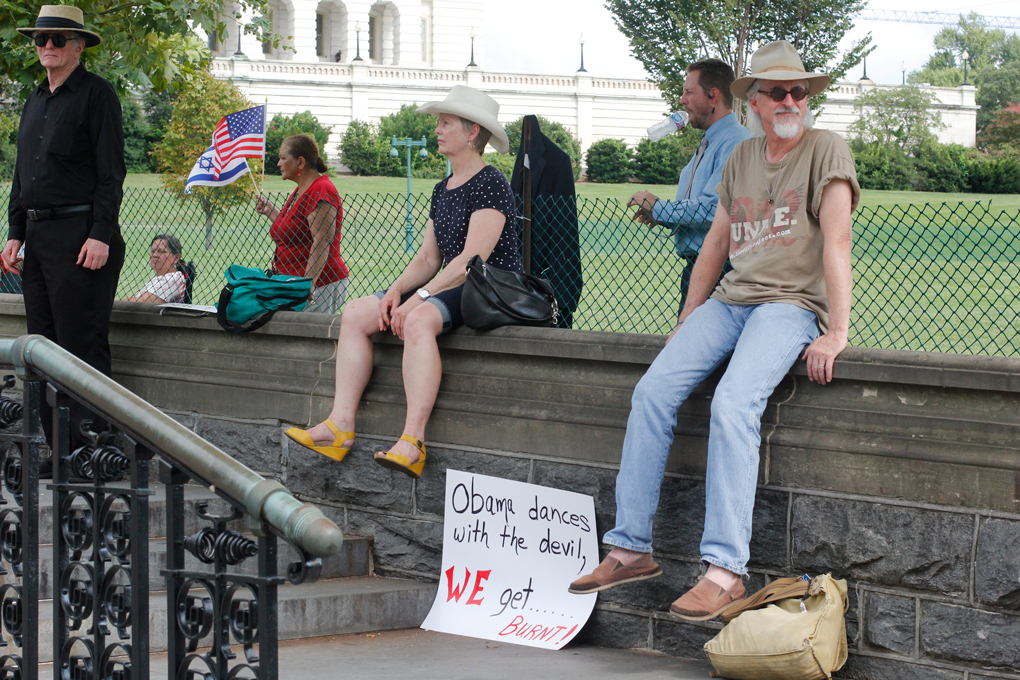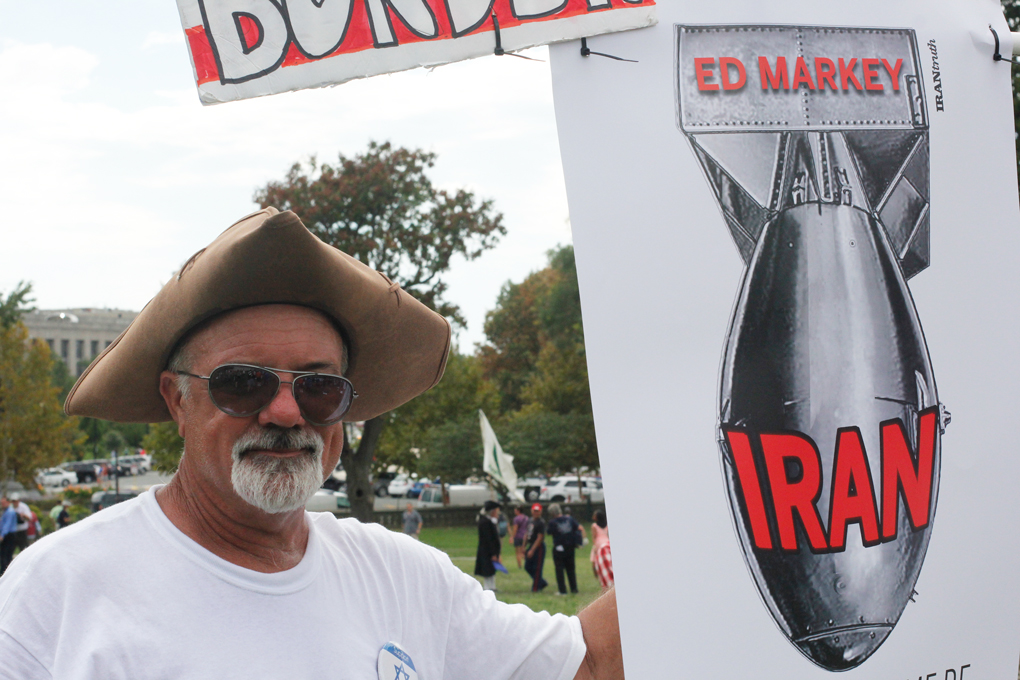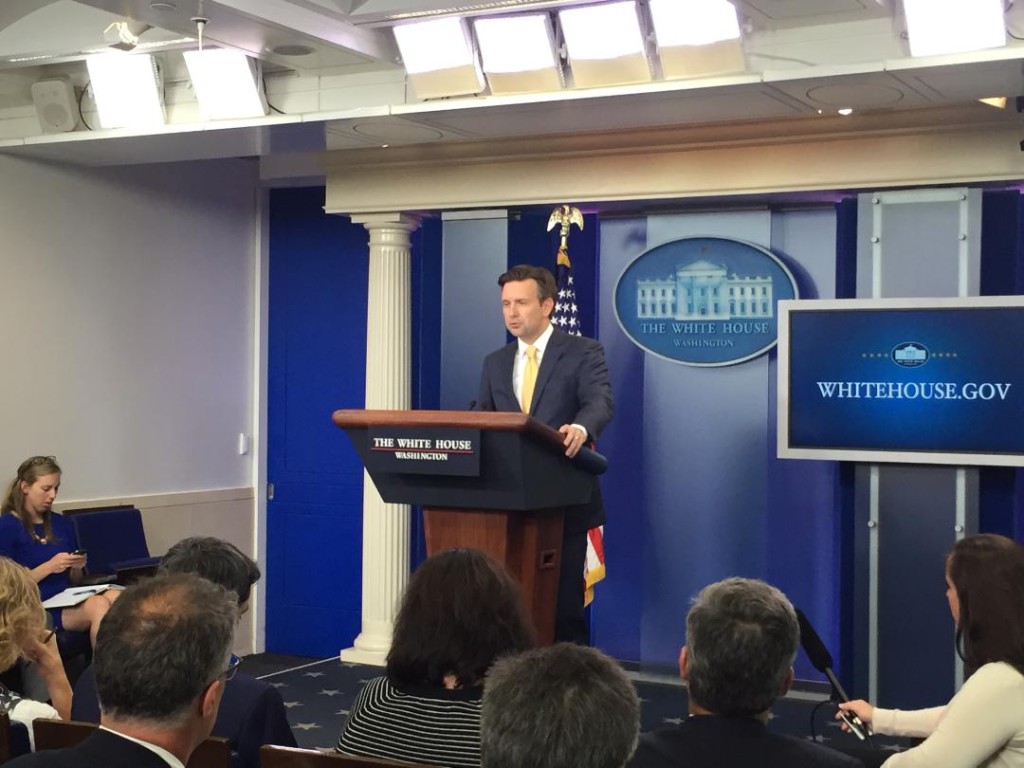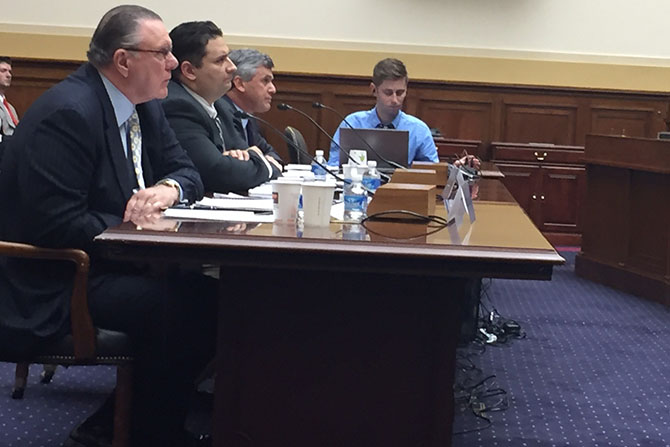
A witness speaks about strategy in Syria. (Sam Fiske/MEDILL NSJI)
WASHINGTON — Russia’s recent airstrikes in Syria are prompting concerns that America is losing power and political influence in the region. And the fact that Russia is reportedly targeting positions that include those held by U.S.-trained rebel factions – but not by the Islamic State group, also known as ISIL or ISIS – is widely seen as underscoring the divide between American and Russian strategies.
“I believe Russia will first and foremost protect Assad and its port, and ensure its own continued role and influence,” Michael O’Hanlon, a senior fellow specializing in national security and defense policy at the Brookings Institution, said in an email, referring to Russia’s naval facility in the Syrian city of Tartus. “Defeating ISIL in the first instance matters less to them.”
Russia’s perceived intent to attack terrorist forces fighting Syrian President Bashar al-Assad – its historic ally – while focusing less on the Islamic State group alarmed lawmakers this week, who decried what many of them see as America’s lackluster Middle Eastern counterterrorism strategy.
Since last year, the U.S. has conducted airstrikes against the Islamic State group, provided air cover for ground forces like the Kurdish peshmerga, and trained and equipped rebel ground forces. The Pentagon announced Tuesday it had “paused” sending forces it has trained back into Syria after confirming previous reports some of those rebels had traded their U.S.-issued gear and vehicles to extremists in exchange for safe passage through areas they controlled.
But even before that, results had been mixed.
At a hearing Tuesday in Washington, members of the House Foreign Affairs Subcommittee on Terrorism, Nonproliferation, and Trade questioned witnesses about the effectiveness of these tactics, particularly the so-called “train and equip” mission.
“The indigenous ground forces in Syria and Iraq are not capable of defeating ISIS,” retired U.S. Army Gen. John M. Keane told the panel. “We are not only failing, we are losing this war. Moreover, I can say with certainty this strategy will not defeat ISIS.”
When done right, training and equipping indigenous forces is considered by some military experts to be an effective strategy for stabilizing a region. In a phone interview, Ben Connable, an analyst for the RAND Corp. and a retired Marine intelligence officer, compared the U.S. training in the Middle East to the French attempts to build a militia force in South Vietnam in the 1950s.
“They were in a hurry. They wanted to get out of Indochina,” said Connable. “So what they did was rush the half-trained force into the field and they were destroyed piecemeal.”
The situation, in Connable’s view, is similar to present-day Syria.
“Just because they went through a training course does not mean they are ready for combat,” he said. “You don’t put a couple hundred newbies into the fight.”
Airstrikes prevent gains by the Islamic State group and eliminate targets, but they have done little to quell the insurgent activities tearing through Iraq and Syria.
“High-value targeting is most effective when it is combined with other counterinsurgency measures,” said Thomas Joscelyn, a witness at the Tuesday committee hearing and senior fellow at the Foundation for Defense of Democracies. “Unfortunately, there are currently no boots on the ground truly capable of implementing a large-scale counterinsurgency strategy.”
America’s inability to develop a successful trained militia in Syria or maintain a concrete strategy allowed Russian President Vladimir Putin to criticize the U.S. in an address to the United Nations on Monday and call for a “broad international coalition” to fight ISIS and other terrorists, such as the al-Nusra Front.
The subcommittee chairman, Rep. Ted Poe, R-Texas, offered his concerns that the U.S. won’t achieve one of its principal objectives: removing Assad from power.
“It is a reality,” Keane said in response to Poe’s concerns that Russia’s new tactics will successfully prop up Assad. “I would tell Mr. Putin that I’m going to fly my airplanes where I want, when I want and you’re not going to interfere with them.”
Keane believes that the U.S. will eventually be able to remove Assad from leadership in Syria, with or without the help of the Russians. But with the Russian military now involved, it is not clear how or when that will happen.
Daniel Benjamin, another committee witness, noted Thursday that Russian military support has revitalized the Assad government.
“Whatever shared commitment there was among Western nations that Assad had to go has been essentially rendered moot,” said Benjamin, also a nonresident senior fellow at The Brookings Institution. “The diplomacy now has to get going with an understanding that Assad still may go, but not soon and not on the kinds of terms that were envisioned to date.”
Complicating matters is the fact that the Syria-Russia relationship goes well beyond the military alliance.
“There is an emotional connection between the Russian military and Syria,” Connable said. “The Syrian officers married Russian women and the Russian officers married Syrian women. It’s not just a political relationship, it’s a socio-cultural relationship as well.”
Stephen Blank, a senior fellow at the American Foreign Policy Council, said America’s limited military role in Syria is giving Russia an even stronger position of power.
“The fundamental problem is this administration does not know how to cover political objectives with military strategies,” Blank said of the Obama White House, adding that Russia has “a capability to project power in well-defined strategic objectives.”
Russia, which began bombing anti-Syrian government forces Wednesday, has forced the U.S. government to reassess its strategy in the Middle East. Lawmakers and experts who participated in Tuesday’s panel appeared to agree America must revisit its counterterrorism efforts in Syria.
“I think it’s time this administration goes back to the drawing board,” said Rep. Scott Perry, R-Penn.
Published in conjunction with 




